Staying youthful in your 50s has less to do with chasing trends and more to do with how well you care for your body, mind, and energy day-to-day.

While morning routines get all the hype, it’s your evening habits that set the tone for how you sleep, how you age, and how you show up the next day. These low-effort, high-impact habits won’t turn back time, but they will help you stay vibrant, clear-headed, and emotionally balanced—without needing to overhaul your entire lifestyle. Here’s what makes a difference after the sun goes down.
1. Washing your face properly (not just quickly).
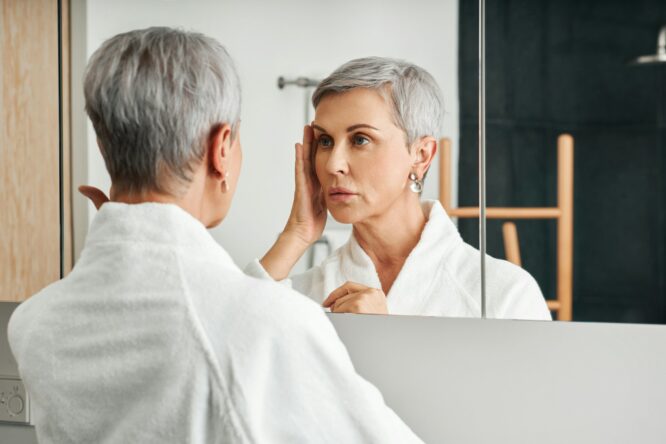
A lot of damage to the skin happens quietly—pollution, sun exposure, makeup buildup, and even stress. Taking a couple of minutes to wash your face thoroughly at night removes all the grime your skin collects throughout the day and lets it actually breathe and repair overnight.
You don’t need a 10-step routine. A gentle cleanser followed by a nourishing moisturiser or serum makes a noticeable difference. As time goes on, your skin starts to look less tired, and more like you’ve had a really good night’s sleep, even when you haven’t.
2. Avoiding screens for at least 30 minutes before bed.

Phones and tablets are convenient, but brutal on your sleep. The blue light messes with melatonin, the hormone that helps you fall and stay asleep. Plus, the content we scroll through (news, emails, social media) often ramps up stress just when you’re trying to wind down.
Creating a short buffer before bed, even 30 minutes of no screens, helps your brain switch into sleep mode. It’s not about being perfect every night, but this small change can improve sleep quality and mental clarity more than most people realise.
3. Doing a light stretch or mobility routine.
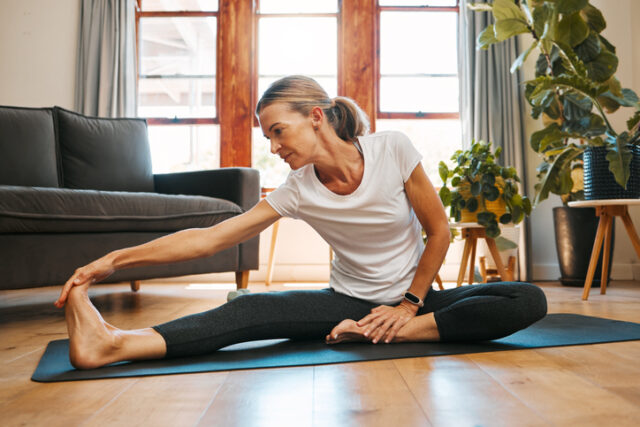
You don’t need a full workout after dinner, but a short stretch before bed helps keep your joints loose and your body feeling limber. As you age, mobility doesn’t just fade—it gets lost in the little moments when you stop moving altogether. Gentle movement in the evening helps ease tension built up during the day and keeps your body feeling younger for longer. Plus, it can improve circulation and help you sleep more deeply without waking up stiff.
4. Prioritising sleep like your wellbeing depends on it (because it does).

The connection between sleep and ageing is real. Poor sleep accelerates inflammation, worsens skin quality, and dulls your focus. In contrast, quality sleep is basically free anti-ageing, and the body’s most reliable repair system. Setting a consistent bedtime, winding down properly, and creating a sleep-friendly environment (cool, dark, and quiet) makes your body work with you, not against you. Youthfulness has a rhythm, and it starts with better rest.
5. Using a simple nighttime skincare product with retinol or peptides
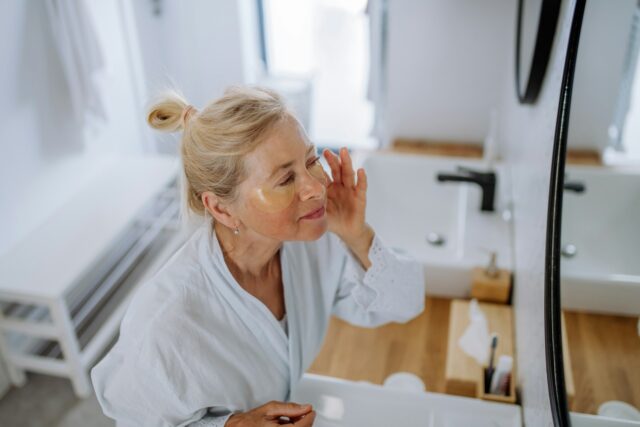 Source: Unsplash
Source: Unsplash At this age, hydration is helpful, but cell turnover is key. Retinol (or retinoids) and peptides help the skin produce collagen, reduce fine lines, and stay firm over time. They don’t need to be expensive or overcomplicated—they just need to be used consistently.
Starting slow (once or twice a week) helps avoid irritation. The payoff? Brighter, smoother skin that still feels like yours, just a bit more refreshed. Think of it as training your skin to work smarter overnight.
6. Drinking water, not wine, as your last beverage

A nightcap might feel relaxing in the moment, but alcohol disrupts sleep cycles, dehydrates your skin, and speeds up visible ageing over time. Swapping that drink for a glass of water helps your body reset more effectively overnight. Even mild dehydration can make you wake up groggier and more prone to inflammation. Ending your night with water supports everything from digestion to skin health to mental sharpness the next morning.
7. Journaling or reflecting to release mental clutter

Emotional stress and unprocessed thoughts don’t just disappear when the lights go out. Writing down what’s on your mind—whether it’s a to-do list, a worry, or a small win—helps clear emotional static before bed. This doesn’t need to be poetic or profound. A few lines of honest reflection can calm your nervous system and make you feel more grounded. Over time, this habit builds resilience, clarity, and an emotional steadiness that shows in your energy and presence.
8. Creating a wind-down cue (like soft lighting or a certain playlist)

Your brain responds well to patterns. Doing the same simple thing each evening—like turning off overhead lights and switching to a lamp, or putting on a relaxing playlist—signals to your body that it’s time to relax and shut down. This habit works best when it’s tied to real cues, not just ideas. After a while, your mind begins to associate that playlist or lighting with calm, making it easier to transition into deep, restful sleep with less tossing and turning.
9. Giving your digestion a break

Late-night snacking, especially heavy meals close to bedtime, can interfere with everything from sleep quality to metabolism. As your body ages, digestion slows down, and eating too close to sleep forces your body to work overnight instead of rest. Try finishing your last meal two to three hours before bed. It’s a simple habit that helps with everything from bloating to energy the next day. Your body will thank you for the breathing room.
10. Taking magnesium or calming supplements if needed

As stress builds and hormones change in your 50s, sleep can get lighter or more interrupted. A gentle, natural sleep aid like magnesium can help relax your muscles and calm your mind without the grogginess that comes with harsher sleep meds. It’s not a magic fix, but paired with a wind-down routine, it can make a noticeable difference. Always check with your doctor first, but this is one of those small steps that adds up to smoother nights and brighter mornings.
11. Speaking kindly to yourself before bed
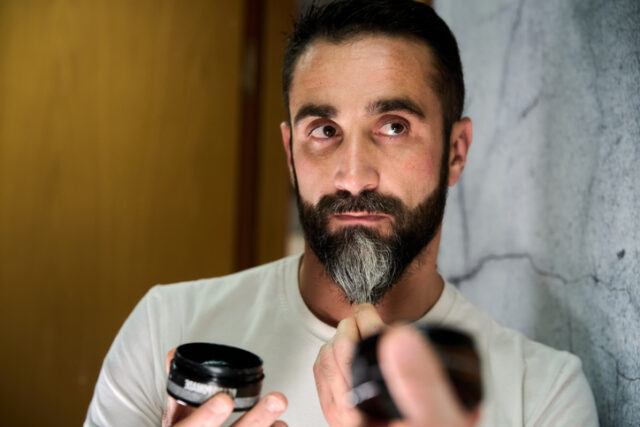
The tone you set at the end of the day matters. Beating yourself up over what you didn’t finish or worrying about tomorrow rarely helps you rest. Instead, try saying one or two kind things to yourself, even if it feels awkward at first. Whether it’s “I did what I could today” or “Tomorrow will get its turn,” speaking to yourself with calm, honest reassurance softens the edges of stress. Kindness, especially toward yourself, shows on your face—and in your energy—as you age.
12. Reading something light (instead of endlessly scrolling)

Social media and the news feed can overstimulate your brain and leave you feeling anxious right before sleep. Swapping 15 minutes of scrolling for a few pages of fiction or something light-hearted can improve sleep and reduce late-night overthinking. It’s a subtle change that adds up. The content you consume just before bed often lingers in your dreams or early-morning mood. Choose something gentle and positive, and you’ll likely feel the difference in how you wake up.
13. Massaging your hands, feet, or jaw
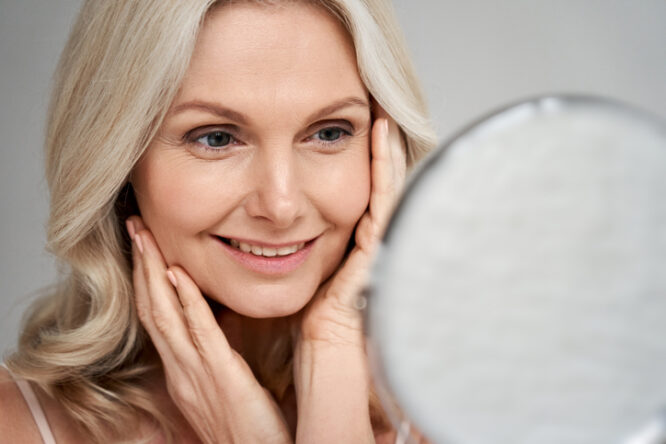
Self-massage before bed sounds indulgent, but it’s surprisingly easy, and incredibly grounding. A few minutes spent gently massaging your hands, feet, or even your jaw can help release tension that’s built up all day without you noticing. Doing this regularly helps circulation and eases physical tightness that contributes to stress and ageing. It’s a small ritual that reconnects you with your body and adds a sense of calm that carries over into how you carry yourself the next day.
14. Protecting your sleep from drama and overstimulation

The shows you binge, the conversations you have late at night, or even the emails you check before bed can overload your system without you realising it. Protecting your emotional space at night isn’t selfish—it’s smart. Whether that means not responding to drama-filled texts after 8pm or skipping true crime before bed, it’s about curating peace. Emotional stimulation ages you just as much as physical stress. Protecting your peace is one of the best ways to protect your glow.




